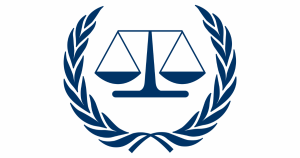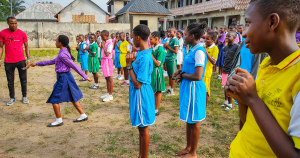The recommendations, directed towards the Libyan authorities, address the following main areas:
– ensure the development of an effective and inclusive transitional justice process that, by addressing both past and ongoing human rights violations, can play a crucial role to foster accountability, national reconciliation and ultimately the rule of law;
– ensure the establishment of a coherent, fair and impartial justice system, in conformity with international standards that can break with the legacy of impunity and abuses that typified Muammar Gaddafi’s rule;
– address past and ongoing violations of the human rights of women, in particular with respect to their full empowerment in civic and political life and sexual and gender-based violence, which continues to be widespread, ill-documented and under-reported.
The recommendations will be considered at the 22nd Session of the UPR Working Group to be held in May 2015.
Recommendations on Transitional Justice and the Rule of Law
- Libya should develop a robust legal framework for the promotion and protection of human rights by ensuring that the constitution and national legislation are fully compliant with international human rights standards, including by completing the comprehensive review of the penal code, the code of criminal procedure and other legislation;
- Implement a comprehensive approach to transitional justice through, inter alia, ensuring the appointment of qualified and independent members of the Fact-Finding and Reconciliation Commission, taking into account gender issues and ensuring the coordination of all truth-seeking initiatives. A transitional justice strategy can contribute to defining how Libyan society will go forward, and lay the foundations for a new democratic society;
- Provide investigative capacity and, where needed, funding to the truth-finding commission that lies at the heart of the transitional justice system and quickly appoint its members should be also a priority;
- The truth-finding commission has to ensure that outreach and inclusive mechanisms are developed to inform and update the population about its activities and findings;
- Strengthen watchdogs and mediators alike, in particular the National Council for Civil Liberties and Human Rights (NCCLHR), which should not be considered as antagonists to the government particularly if coming from Libyan civil society. This will guarantee against abuses and help prevent violence;
- Transitional justice should encompass not just criminal justice but also truth seeking, reparations, and reforms intended to guarantee that such violations do not recur. As a starting point, Libyan authorities should consider instituting a socially dynamic approach to truth-seeking that ensures participation of wide – section of Libyan society particularly victims of past and present violations of human rights;
- The Law on Political and Administrative Isolation and related vetting legislation and policies should be reviewed to ensure that vetting criteria and the process for their application are precise, proportionate and fair;
- Any commission for missing persons should be independent and impartial, with the resources and authority to search for and identify all missing persons, regardless of affiliation, and take the necessary measures to support their families;
- All necessary measures should be taken to ensure a safe environment, free of intimidation, for the trials of members of the former regime and members of the armed brigades, whilst ensuring accordance with internationally recognized fair trial standards;
- Ensure full cooperation with the ICC and its decisions;
- In order to ensure maximum efficacy from attempts to address the serious backlog of revolution related cases, a panel of senior members of the judiciary should be created by the Judicial Inspectorate to provide oversight of the work of judges involved in these cases;
- An amnesty law must be consistent with a state’s fundamental obligations under customary international law while Law No. 38/2012 fails to meet a number of these criteria. The apparent limitation on its application contained in Law No. 35/2012 is ambiguous and does not set out any guidelines for the interpretation of international law, we ask therefore the Government to amend such laws;
- Pass into law the 19 February 2014 Ministerial Decree on Legislation to Redress the Situation of Victims of Rape and Violence and facilitate its implementation, in particular with regards to its article 3 to ensure that legislative and administrative measures are elaborated to facilitate the prosecution of SGBV cases, starting from the violence committed during the revolution.
Recommendations on the Judicial System
- Libya should incorporate an absolute prohibition of torture and a domestic definition of torture in line with the Convention against Torture and other Cruel, Inhuman, Degrading Treatment or Punishment in Libyan legislation;
- Take all necessary steps to ratify the Optional Protocol to the Convention against Torture and Other Cruel, Inhuman or Degrading Treatment or Punishment; the International Convention for the Protection of All Persons from Enforced Disappearances; the 1951 Convention relating to the Status of Refugees and its Optional Protocol; the Optional Protocol to the International Covenant on Economic, Social and Cultural Rights; and withdraw all of its reservations to the Convention on the Elimination of All Forms of Discrimination against Women;
- Take all necessary steps to ratify the Rome Statute of the International Criminal Court and enact implementing legislation to incorporate Rome Statute crimes in Libyan law and provide for cooperation with the Court;
- Strengthen the capacity of State institutions, such as the judicial system and the Judicial Police, to uphold the rule of law through, inter alia, enhancing security for prosecutors, judges and the courts through close cooperation between the Ministries of Justice, Interior and Defence;
- Develop a robust legal framework for the promotion and protection of human rights by ensuring that the constitution and national legislation are fully compliant with international human rights standards, including by completing the comprehensive review of the Penal Code, the Code of Criminal Procedure and all other relevant legislation;
- Provide legal guarantees to anyone subject to unlawful detention to have an enforceable right to compensation, as stipulated in the ICCPR, to be provided in a fair, consistent and gender-sensitive manner and without discrimination;
- Take all necessary measures to ensure a safe environment, free of intimidation, for the trials of members of the former regime and members of the armed brigades, while ensuring accordance with internationally recognised fair trial standards;
- Make public the conclusion of any investigation that may have taken place into incidents relating to prisoners and to ensure that an independent and impartial judge conducts such investigations and that the Internal Security Agency fully cooperates;
- Identify those responsible for the killing of prisoners and prosecute them to the fullest extent of the law in fair proceedings;
- Immediately cease pressuring or threatening families of victims into accepting compensation and allow them to demonstrate freely and to express their opinions about legal proceedings without intimidation or harassment from security forces;
- Provide adequate human resources so that cases can be properly investigated and detainees either released or criminal proceedings commenced. The issue should be considered as a matter of urgency by the Parliament and should be viewed as having the potential to affect the long-term stability of Libya;
- In order to ensure maximum efficacy from attempts to address the serious backlog of revolution-related cases, the Judicial Inspectorate should create a panel of senior members of the judiciary to provide oversight of the work of judges involved in these cases;
- Regularise the prison system and ensure that all prisons and detention facilities are managed and controlled by Libyan authorities alone;
- Announce a moratorium on all executions imposed by military and civilian courts and ensure full compliance with the restrictions prescribed in particular in article 6 of the ICCPR, including by limiting the use of the death penalty only to the most serious crimes and by ensuring scrupulous respect of due process guarantees, including fair trial guarantees in capital cases.
Recommendations on Women’s Rights
- Libya should withdraw its reservations to the Convention on the Elimination of All Forms of Discrimination Against Women (CEDAW), to guarantee effective protection of women’s human rights as they are recognised internationally and regionally, including in CEDAW and the Maputo Protocol on the Rights of Women in Africa;
- Guarantee full equality for women in the new constitution, consistent with Libya’s international and regional obligations under CEDAW and the Maputo Protocol. The Constitution should ensure that women are protected from all forms of public or domestic violence and that this protection is enforceable by law though the courts;
- Develop laws criminalising domestic violence that give adequate protection to women;
- Repeal or amend current laws that discriminate against women, including article 375 of the Libyan Penal Code. In particular, amend provisions that classify sexual violence as a crime against “honour” and repeal provisions that allow for reduced sentences for perpetrators of “honour” crimes;
- Pass strong anti-discrimination laws;
- Ensure adequate financial, administrative and human resources for a comprehensive protection and service response, to strengthen national institutions and for the implementation of comprehensive legislation on reparations for victims of conflict-related sexual and gender-based violence;
- Ensure, inter alia, women’s right to equal access to justice. The Libyan parliament should assume its responsibility towards the victims of SGBV by adopting the Proposed Decree to Redress the Situation of Victims of Rape and Violence as a law, in particular with regards to its article 3 to ensure that legislative and administrative measures are elaborated to facilitate the prosecution of SGBV cases, starting from the violence committed during the revolution;
- Ensure the effective implementation of the provisions of United Nations General Assembly Resolution A/RES/67/146 by adopting and enforcing laws and regulations banning female genital mutilation, including criminal sanctions for authors and accomplices, prevention measures and support for victims, including those within immigrant communities, in conformity with the provisions of the UNGA Resolution.
Documentation:
- Joint submission on Libya and Transitional Justice: English / Arabic
- Joint submission on the Libyan Judicial System: English / Arabic
- Joint submission on Libya and Women’s Rights: English / Arabic
NPWJ in Libya
NPWJ has been working on the Libyan transition since early 2011, in the framework of its project to support Libya’s democratic transition through justice and accountability. As the country embarks on legislative reforms, the Libyan authorities can break with the legacy of impunity and abuses that typified Gaddafi’s rule with a new respect for the rule of law and a commitment to restoring justice and dignity to victims. Doing so requires not only the investigation and prosecution of the crimes and violence perpetrated during the revolution, but also efforts to confront a history of oppression and human rights abuses that dates back decades under the rule of the former regime.
For further information, please contact Gianluca Eramo on geramo@npwj.org or Enrica Barago on ebarago@npwj.org or +41 766 240905 or Nicola Giovannini (Press & Public Affairs Coordinator) on ngiovannini@npwj.org or +32-2-548-3915.
For further information on the activities of NPWJ in Libya please contact Giulia Cappellazzi, at gcappellazzi@npwj.org or +218911476934.




